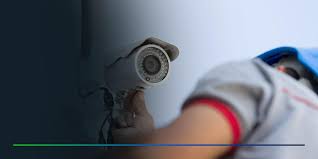Security cameras have become an integral part of modern security cameras installation systems, providing enhanced surveillance and protection for residential, commercial, and public spaces. Over the years, the technology behind security cameras has evolved significantly, making them more efficient, versatile, and accessible. This article explores the history, advancements, and importance of security cameras in today’s world.
The History of Security Cameras
The concept of security cameras dates back to the mid-20th century. The first documented use of a closed-circuit television (CCTV) system was in Germany in 1942, installed by Siemens AG to observe the launch of V-2 rockets. This rudimentary system marked the beginning of surveillance technology. However, it wasn’t until the 1960s that security cameras started gaining popularity for commercial and public use. Banks and retail stores began to adopt CCTV systems to deter theft and monitor activities.
Technological Advancements
- Analog to Digital Transition: Early security cameras were analog, recording footage on videotapes. These systems were bulky, required manual tape changes, and had limited storage capacity. The transition to digital technology in the late 20th century revolutionized the industry. Digital cameras offered higher resolution, longer storage periods, and easier access to recorded footage.
- IP Cameras: The introduction of Internet Protocol (IP) cameras in the 1990s marked a significant advancement. Unlike analog cameras, IP cameras could transmit video over a network, allowing for remote viewing and management. This technology enabled real-time monitoring from anywhere in the world, provided there was internet access.
- High Definition and 4K Resolution: Modern security cameras offer high-definition (HD) and 4K resolution, providing crystal-clear images and videos. This improvement in image quality helps in better identifying faces, license plates, and other critical details.
- Wireless and Smart Cameras: The development of wireless technology has made installation more flexible and less invasive. Smart cameras, integrated with artificial intelligence (AI) and machine learning, can now detect unusual activities, recognize faces, and even alert authorities in case of emergencies.
- Night Vision and Thermal Imaging: Security cameras equipped with infrared (IR) LEDs can capture clear images in low-light or no-light conditions. Thermal imaging cameras go a step further by detecting heat signatures, making them invaluable for monitoring in complete darkness or through smoke and fog.
Importance of Security Cameras
- Crime Deterrence: Visible security cameras act as a deterrent to criminal activities. Potential offenders are less likely to engage in illegal activities if they know they are being watched and recorded.
- Evidence Collection: Security cameras provide crucial evidence in the event of a crime. High-resolution footage can help law enforcement identify suspects, reconstruct events, and secure convictions.
- Enhanced Safety: In public places like schools, hospitals, and transportation hubs, security cameras enhance safety by monitoring for suspicious behavior and ensuring a swift response to emergencies.
- Remote Monitoring: For businesses and homeowners, the ability to monitor properties remotely offers peace of mind. Modern systems allow users to check live feeds, receive alerts, and even control cameras from their smartphones.
- Operational Efficiency: In businesses, security cameras help monitor employee behavior, ensure compliance with safety protocols, and improve overall operational efficiency.
Privacy Concerns and Ethical Considerations
While security cameras offer numerous benefits, they also raise privacy concerns. The widespread use of surveillance can lead to a sense of being constantly watched, infringing on personal privacy. It is crucial to balance security needs with privacy rights, ensuring that surveillance systems are used ethically and transparently. Proper regulations and policies should be in place to govern the use of security cameras, ensuring that footage is stored securely and accessed only by authorized personnel.
Conclusion
The evolution of security cameras from analog systems to advanced digital, wireless, and AI-powered devices has significantly enhanced our ability to monitor and secure environments. As technology continues to advance, security cameras will undoubtedly play an even more crucial role in safeguarding our homes, businesses, and public spaces. However, it is essential to address privacy concerns and implement ethical practices to ensure that surveillance is used responsibly.

